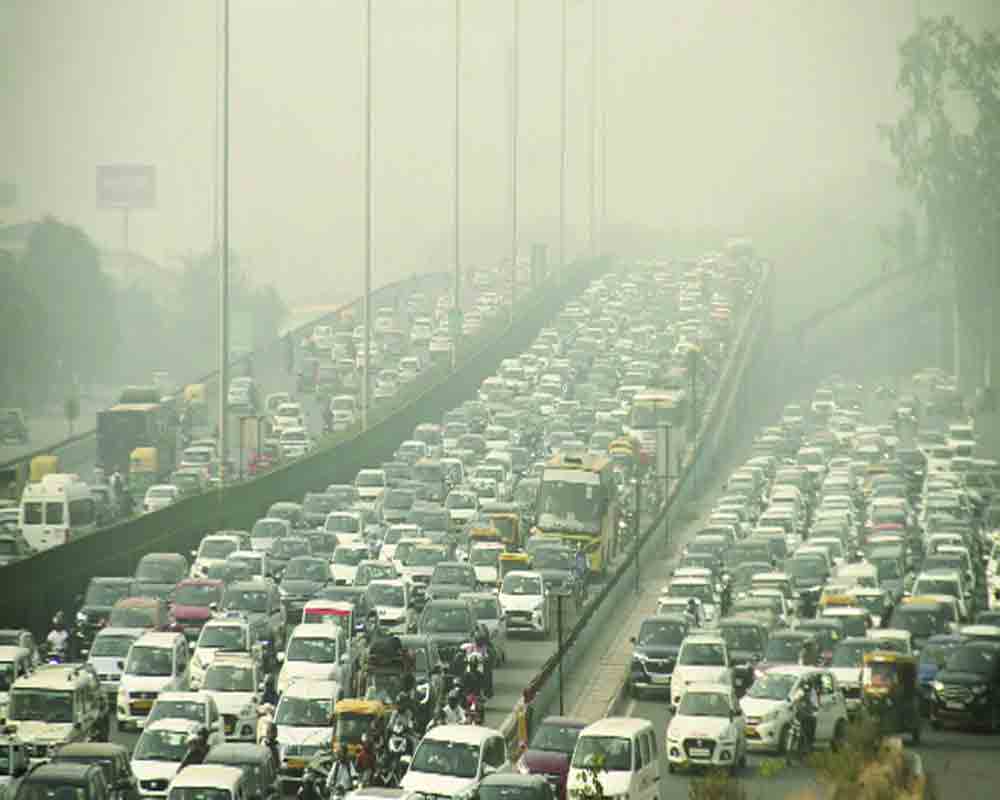Delhi gasps for clean air as Govt experiments with unconventional methods to control pollution
Delhi continues to choke as the city's air quality has plummeted to alarming levels, mostly hovering in the 'severe' category, for over a week now. Funny thing is that Delhiites do not even know for sure who exactly rules them --- the Lt Governor, the Union Government or the Chief Minister --- but what is certain is that none of them has handled the crisis well. If one is to go by the wheezing crowds in hospitals, patients gasping for air and children coughing incessantly, the situation is alarming and calls for a health emergency. Despite some routine optics to curb pollution, the Government's measures are falling way short. The situation is so dire that experts are suggesting unconventional methods such as artificial rain through cloud seeding. The odd-even car rationing scheme is being revisited after the Supreme Court reviewed its effectiveness. As of 6 am on Thursday, the System of Air Quality and Weather Forecasting And Research (SAFAR) reported that the overall air quality in Delhi remains in the 'very poor' category, with an Air Quality Index (AQI) of 398. This comes after the AQI crossed the 400-mark, reaching the 'severe' category in the preceding days. The severity has prompted the implementation of Stage IV of the Graded Response Action Plan (GRAP) in the national Capital. And before you think that the situation has eased due to the Government's efforts, it has not. A rise in temperature and higher wind velocity should take credit for it, not the Government. In an attempt to combat the escalating crisis, the Delhi Government has proposed the implementation of artificial rain through cloud seeding. Delhi's environment department has made a submission to the Supreme Court highlighting the urgency of finding innovative solutions to the persistent air pollution problem. However, the success of such unconventional methods remains uncertain, especially since these are being deployed at the eleventh hour.
The Supreme Court has rightly observed that when the poor air quality is an annual recurrence, why must the authorities wait for the situation to turn dire before starting to make plans to deal with it? The odd-even car rationing scheme, a measure previously employed during peak pollution periods, is under scrutiny. The Supreme Court is set to review its effectiveness before issuing any orders. The scheme, which restricts vehicles on the road based on their registration numbers, aims to reduce vehicular emissions --- a major contributor to Delhi's air pollution. The situation serves as a stark reminder of the need for sustained efforts, innovative strategies and comprehensive policies to address the long term root causes of air pollution. A knee-jerk response or firefighting mode just doesn’t help. What is needed is a long-term approach and continuous monitoring. Ironically, the smog towers installed earlier are not functional when they are needed the most. And the worse is coming; brace up for the Diwali weekend as the AQI is feared to breach the 500-mark. Despite a ban, people would celebrate the festival with crackers even if it chokes them!
























